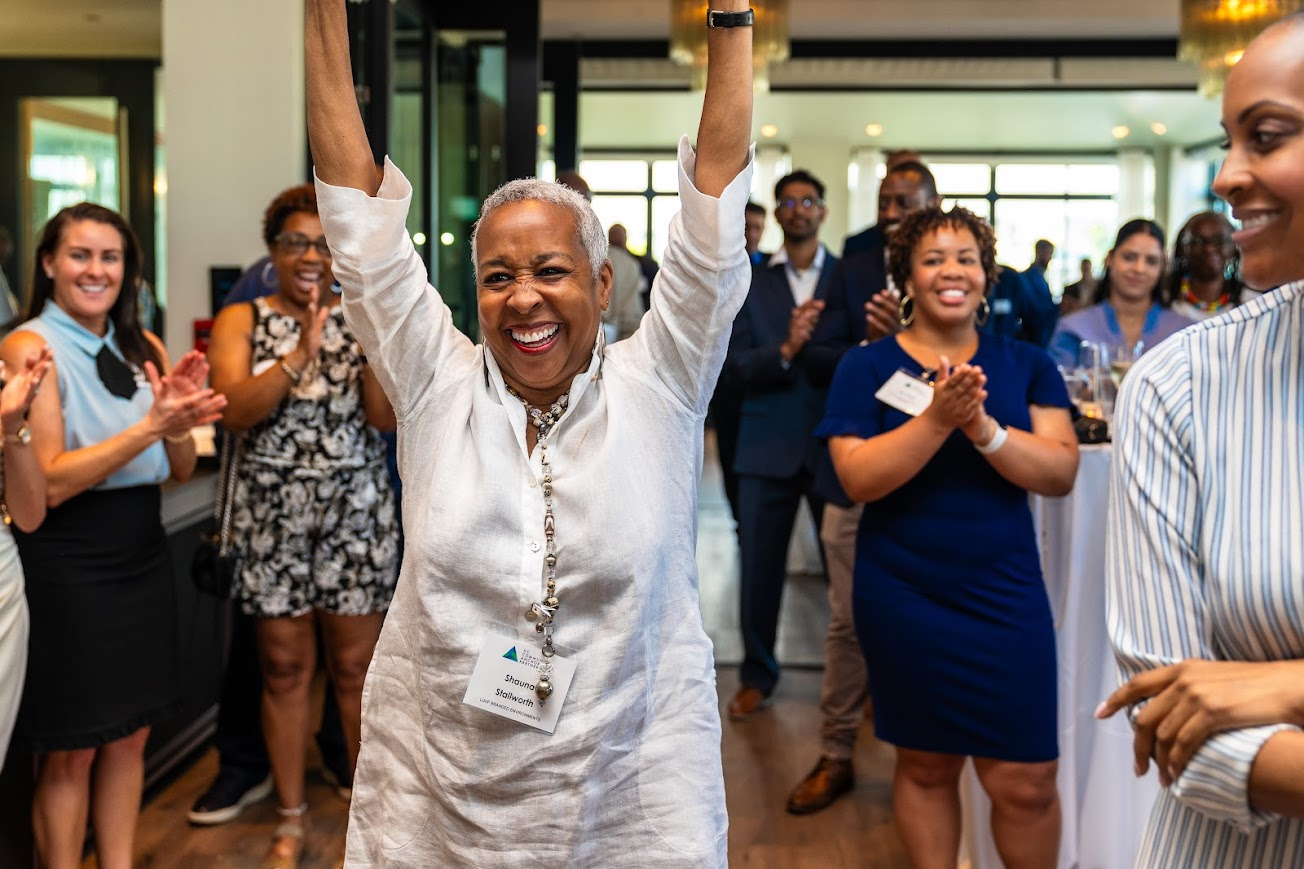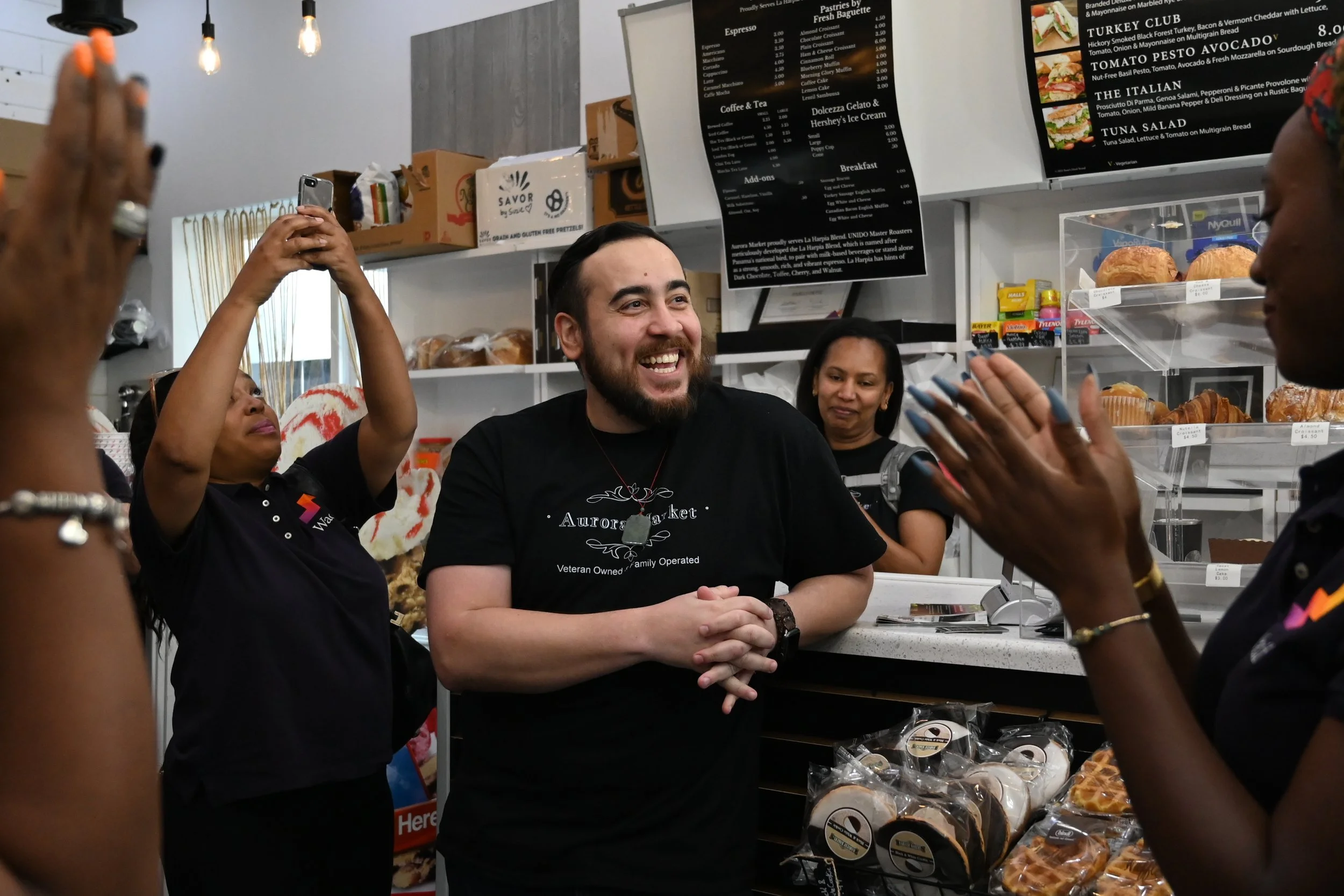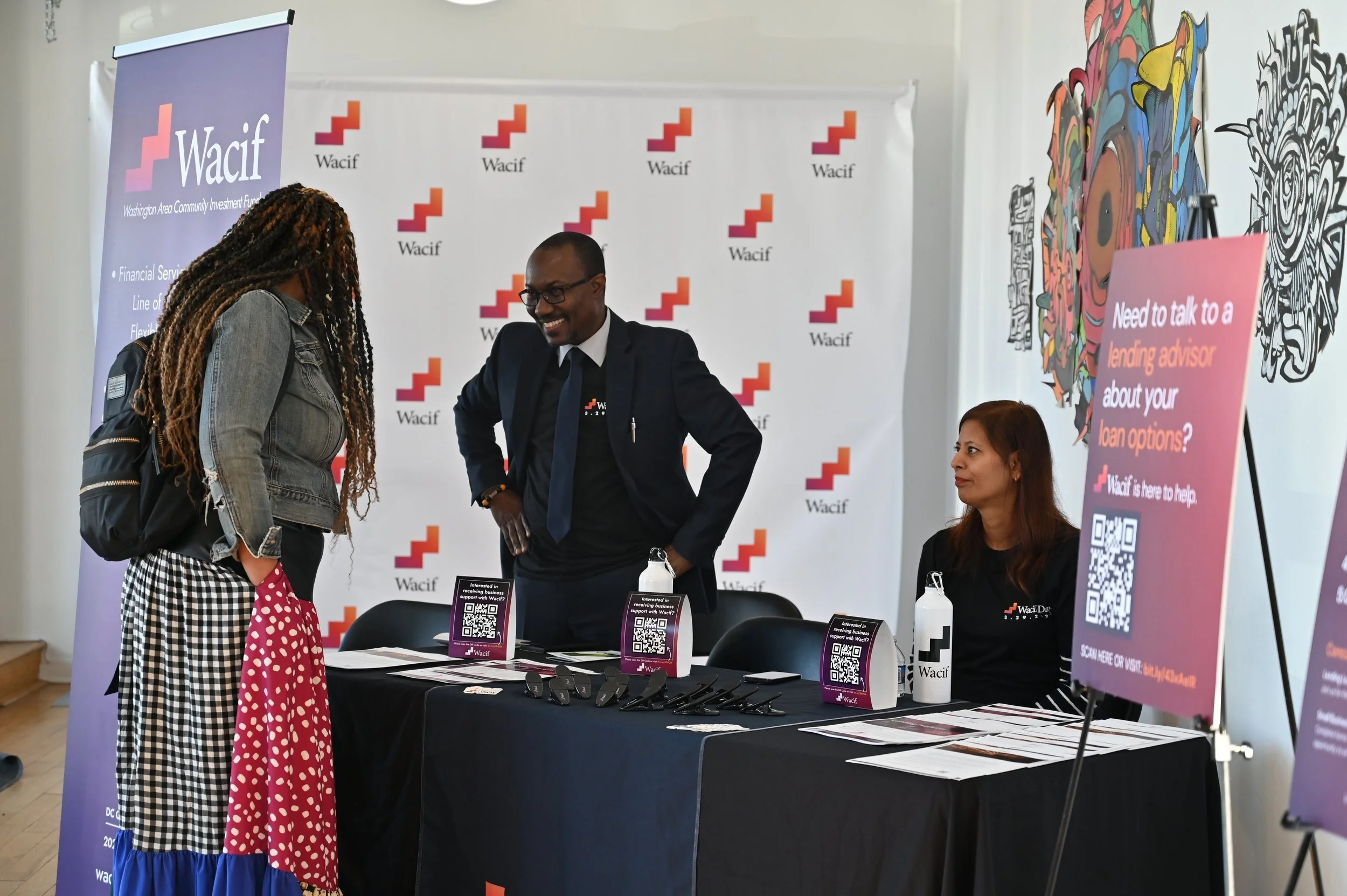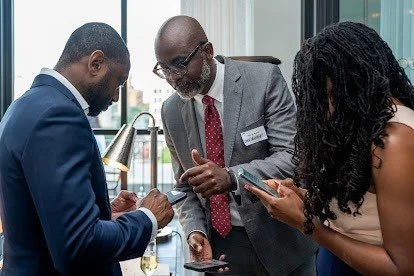Sustainable DC Project: Unleashing the Power of the Green Economy for Communities of Color
DC’s flag may be red and white. However, if you talk to the Washington Area Community Investment Fund (WACIF) or the Coalition for Nonprofit Housing & Economic Development (CNHED), they’ll tell you that the future of DC is green –specifically green economy.
“The green economy presents an incredible opportunity for our community – not just to help our planet; but also to help the people who live in our communities,” explained Shannan Herbert, CEO of WACIF. “We want to make the planet greener, but we also want to help put more green [dollars] in the hands of communities of color who need and deserve this investment.”
Riding the Green Wave –The Economic Windfall of Net-Zero Energy
Over the past decade, as conversations around environmental and climate concerns have grown increasingly urgent, local governments across the country have made investing in green infrastructure an increasing priority – one that comes with a significant economic impact.
In DC alone, a former Director of the Department of Energy and Environment, predicted that the green economy could grow to become a $8-10 billion industry – as contractors and developers work to not only construct, but also update and retrofit the city’s existing infrastructure to meet its goal of achieving carbon neutrality by 2045.
Implementing those plans is expected to create thousands of new jobs in green energy, construction, building maintenance, and other industries — including innumerable opportunities for entrepreneurship and self-employment.
Overcoming the Racial Energy Investment Gap
However, studies show that historically, very few of these opportunities have gone to women or people of color. According to a recent study by the Brookings Institution, less than 20% of workers in clean energy production are women and less than 10% of them are Black.
The study cited a number of barriers including a lack of awareness of the green energy field, but also limited access to the training and resources —such as certification courses, workforce development opportunities, and seed investment—that these groups need to succeed.
“Green energy represents a tremendous economic opportunity,” Steve Glaude, CEO of CNHED shared. “But it requires a lot of money, a lot of resources, and a lot of specialized knowledge to get things started, which is something that many small businesses – especially those owned by women and communities of color – simply don’t have access to.”
“In the push towards net zero emissions, sustainability, and climate resilience, BIPOC-owned and women-owned small businesses are at a competitive disadvantage.”
The Birth of the Sustainable DC Project
From an early stage, CNHED recognized the importance of harnessing the economic impact of the city’s Net-Zero Energy agenda for women and communities of color. A coalition of 180+ nonprofit and mission-driven organizations, CNHED has been actively engaged in community-informed budget and policy advocacy for more than two decades.
“[After DC announced the Net-Zero Energy initiative], my team kept coming to me for the better part of a year – asking for us to get involved in the green economy,” Glaude shared. “But we kept waiting because we wanted to ensure our efforts would have maximum impact.”
The opportunity finally arose when The Community Foundation’s Health Equity Fund put out a call for “innovative and disruptive ideas to increase the economic mobility and community wealth of DC’s most marginalized communities.”
“We purposely wanted to keep the application open-ended,” Dr. Marla Dean, Senior Director of the Health Equity Fund shared. “We are not trying to tell our partners what they should do; we are trying to tap into their creativity and innovation to build new partnerships to transform our communities.”
Within a few weeks, WACIF – a leading community development financial institution in the region – reached out to Glaude to brainstorm ways that they could join forces to impact their community. Over the next few months, WACIF and CNHED began to lay out the framework for a new partnering initiative called the Sustainable DC Project.”
“Sustainable DC is designed to help BIPOC and women-owned small businesses and entrepreneurs harness the power of our region’s green economy,” Herbert explained.
The multimillion-dollar project follows a three-pronged approach:
Access to Capital – Sustainable DC will provide up to $300K in grants and $2 million in flexible, non-predatory loans to help entrepreneurs obtain the certifications, equipment, and supply chain adjustments to meet rising demands. Sustainable DC will also ensure entrepreneurs can access catalytic ‘green’ investments, including the EPA’s $27B Greenhouse Gas Reduction Fund and other local and federal resources.
Addressing the Readiness Gap – Sustainable DC will provide advisory services to help small businesses navigate the everchanging landscape of regulations, resources, and buyer expectations surrounding the Net-Zero Energy Initiative and the green economy. This information will allow them to quickly adapt their business model and stay at the forefront of economic growth and opportunity.
Small businesses can also participate in a cohort-based accelerator – giving them access to thousands of hours of business advisory services and technical assistance, as well as a network of their peers.
Connecting Businesses to New Opportunities – Sustainable DC will connect small businesses to new local and federal investment opportunities, as well as green supply chains and other major customers that can take their business operations to the next level.
“It’s not enough to invest in the green energy,” Herbert continued. “We need to make sure that small businesses – especially those owned by women and communities of color – are set up for success, by providing them the resources, the knowledge, and the opportunities they need to thrive.”
In addition to investing in small businesses in the green energy and infrastructure space, Sustainable DC will also serve small businesses looking to promote and implement more sustainable business practices, such as the use of sustainable packaging and eco-friendly cleaning products – opening the door for small business owners and entrepreneurs from across the spectrum to participate in this innovative program.
Herbert and Glaude hope that Sustainable DC will become an economic model that can be implemented in cities across the country.
“We want this project to be catalyst for economic growth,” Herbert shared. “The dream is that through Sustainable DC, these small businesses will hire more women; more people of color, and we’ll be able to see a ripple effect of economic growth that will transform our communities.”
“Ten years from now, people will do studies about the impact of Green Energy,” Glaude shared. “I hope that – as a result of what we’re doing here - they can cite Sustainable DC as a model – not just for strategic execution, but for inclusivity and economic justice.”
The Community Foundation is proud to support Sustainable DC and its work through the Health Equity Fund.
The Health Equity Fund was created to improve the health outcomes and health equity of DC residents. The fund is governed by a seven-member Health Equity Committee in partnership with the Greater Washington Community Foundation. The seven-member committee includes Nnemdi Elias, MD, MPH; Dr. Tollie Elliott; Wendell L. Johns; Lori Kaplan; Juan M. Jara; Kimberly Harris; and Courtney R. Snowden.
For more information about the Health Equity Fund and available funding opportunities, please visit our website!





